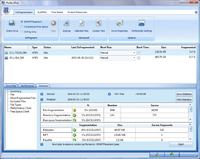I have automatic defragmentation of disks turned on in win 10. And I did not even know that the system gave me the SSD drive C (where is the system) but it was unchecked (reserved by the system, it was unchecked in the system) and I have a question if this shortens the life of the disk or it can break because of this SSD I read various columns and most write that this is a myth because the new drives are resistant and should not be turned off in windows?
quote from a column: "Of course, individual parts of the file on the disk may be fragmented and in the case of SSDs it will not drastically affect performance, but this fragmentation has its limits determined by metadata. When the maximum is reached, further attempts to write the file will cause errors. Defragmentation is so necessary to reduce the number of fragments and also keep the filesystem consistent "
quote from a column: "Of course, individual parts of the file on the disk may be fragmented and in the case of SSDs it will not drastically affect performance, but this fragmentation has its limits determined by metadata. When the maximum is reached, further attempts to write the file will cause errors. Defragmentation is so necessary to reduce the number of fragments and also keep the filesystem consistent "



